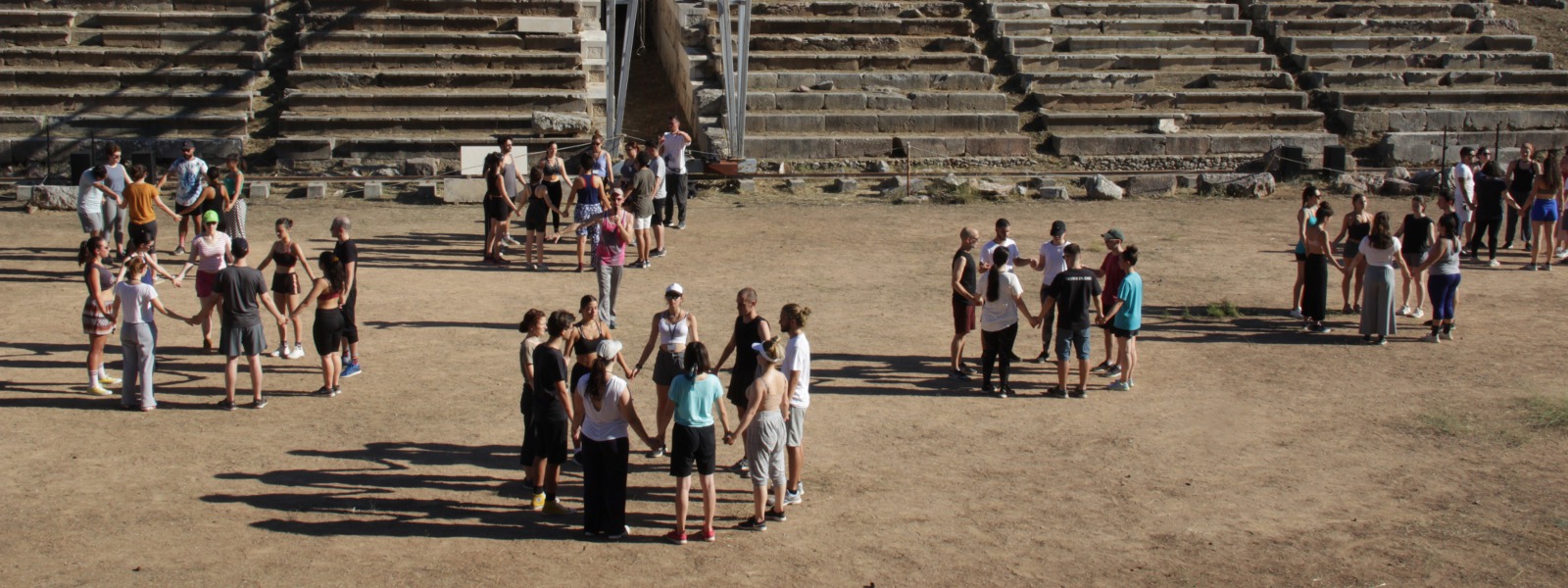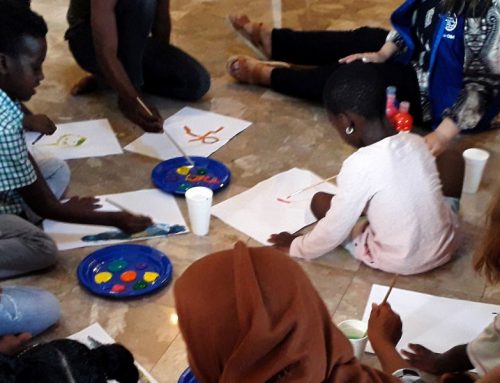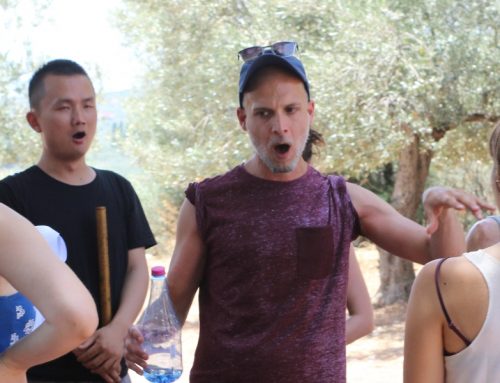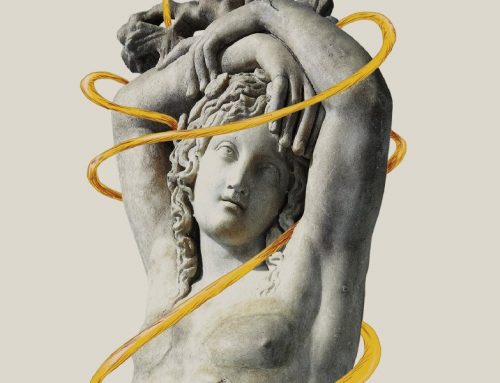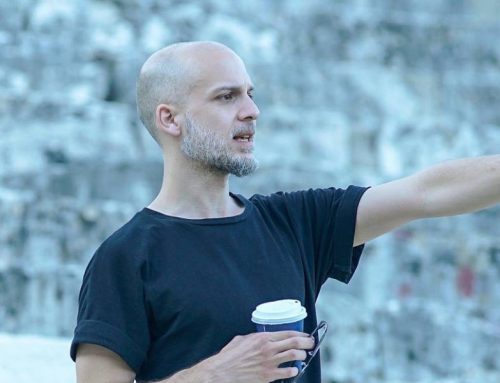Epidaurus Lyceum was successfully completed for the third year in a row. This international summer school of ancient drama is held every summer in Argolis and is attended by young artists and students of the performing arts from around the world. As in previous years, prominent personalities of the international theatre world taught at the 2019 Lyceum workshops.
This year’s Epidaurus Lyceum was held between 2 – 16 July under the theme Reinventing ancient drama on the contemporary stage. A total of 105 students from 18 countries enrolled, while a teaching staff of 22 acclaimed artists and/or scholars taught a rich programme promoting experiential research on ancient drama.
Epidaurus Lyceum is realised in collaboration with the Department of Theatre Studies, University of the Peloponnese, which academically accredits the programme with ECTS credits.
Notable teachers from around the world:
More specifically, workshop teachers and lecturers of the 2019 Epidaurus Lyceum included the following: Jean-Jacques Lemêtre, musician, composer and collaborator of Ariane Mnouchkine’s Théâtre du Soleil; Ichinosuke Umekawa, master of Japanese traditional dance and Kabuki actor; the Sine Qua Non ART duo (Jonathan Pranlas-Descours and Christophe Beranger); Kamila Klamut, actress, co-founder of Teatr ZAR and collaborator of the Grotowski Institute; Christiane Pohle, award-winning director and head of the Academy of Performing Arts Baden- Württemberg programme; Andrea De Rosa, director; Maria Shmaevich, director and professor at the GITIS Institute; Gabriele Vacis, director, writer and theatre theorist; David Malteze, actor; Vangelis Theodoropoulos, director; Anastasis Sarakatsanos, composer and music professor; Krzysztof Warlikowski, director, and Piotr Gruszczyński, dramaturg (Nowy Teatr); Konstantinos Markoulakis, actor and director; Stathis Livathinos, director; Maria Mikedaki and Anna Tsichli from the University of the Peloponnese; Efimia Karakantza and George Sampatakakis from the University of Patras, and Georgina Kakoudaki, head of Epidaurus Lyceum and curator for educational programmes of the Athens & Epidaurus Festivals.
The workshops:
As in every year, each professor brought his or her own theatre origins, experiences and methods on the table. This year’s educational programme was particularly rich and offered unique experiences to students, encompassing one main physical workshop, eight practical workshops, evening discussions, lectures and masterclasses. Furthermore, the Epidaurus Lyceum students and teaching staff watched performances and rehearsals at the Ancient Theatre of Epidaurus and the Little Theatre of Ancient Epidaurus and visited the Asklipion archaeological site.
The Lyceum workshops were held in public spaces, such as the Ancient Theatre and the Ancient Stadium of Epidaurus, the Lygourio primary school, junior’s high and high school, the courtyard of the Agios Athanasios church in Lygourio, the Ancient Epidaurus primary school and various cultural centres in the area.
Standout moments:
The presentation of the main workshop Kommos by the entire student body under the supervision of Sine Qua Non ART (Jonathan Pranlas-Descours and Christophe Beranger) at the Ancient Stadium of Epidaurus was an outstanding moment of this year’s programme.
Other memorable moments include Ichinosuke Umekawa’ performance in Lygourio, and the performance Arlecchin dell’onda and BLU by the Italian artists Enrico Bonavera and Francesco Origo respectively at the Ancient Epidaurus port. All performances were open to the public.
Epidaurus Lyceum is realised under the auspices and support of the Hellenic Ministry of Culture and Sports and is a member of the International Network of Ancient Drama of the Ministry of Culture.
Realised in collaboration with the Department of Theatre Studies, School of Fine Arts, University of the Peloponnese.
With the support of the Municipality of Epidaurus, the Ephorate of Antiquities of Argolis (based in Nafplio), the Institut Français de Grèce, the Istituto Italiano di Cultura di Atene and the Ministero per i Beni e le Attività Culturali – MiBAC.



